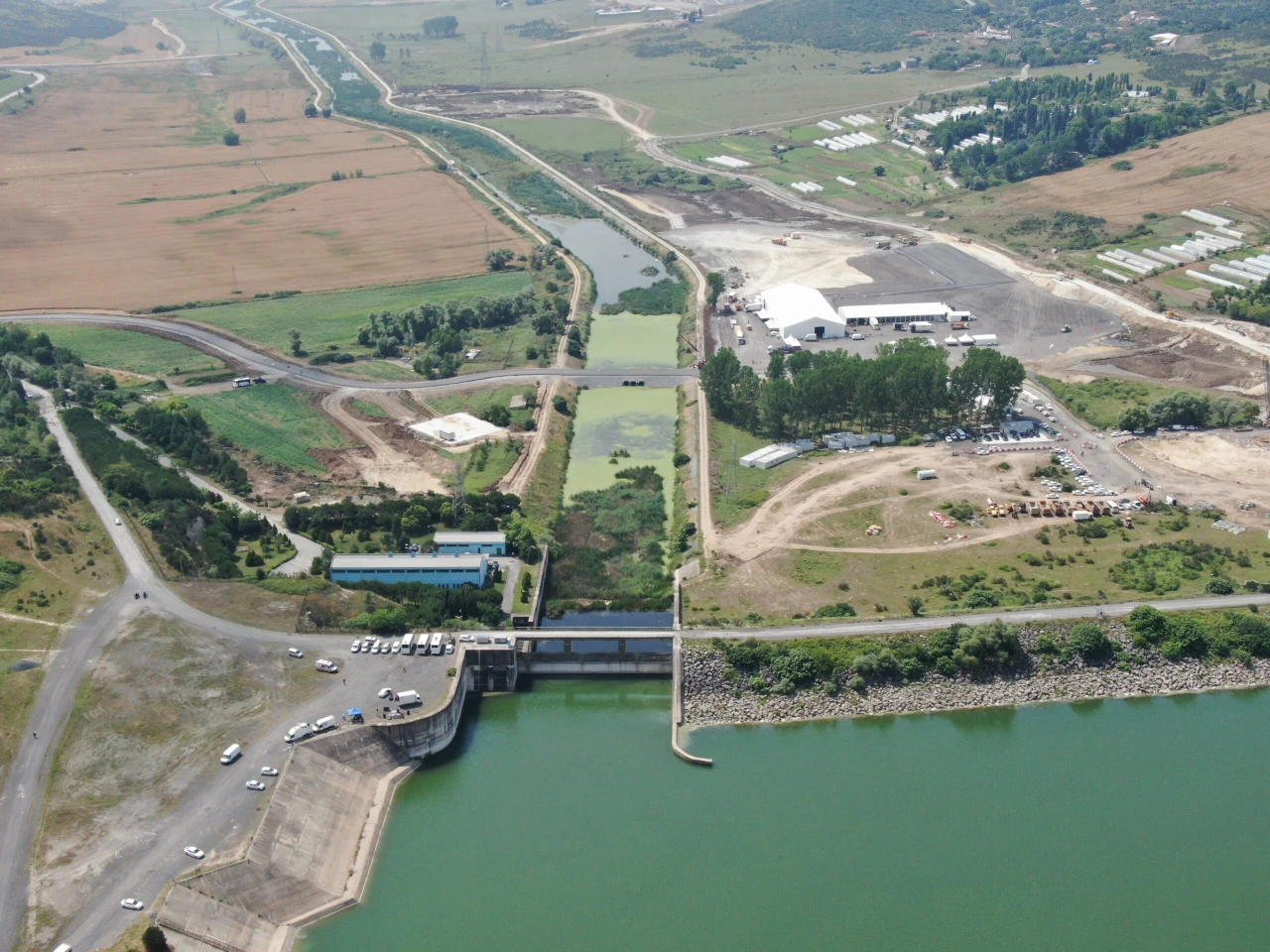Sun illuminates statue of Pharaoh Ramses II in Egypt during rare celestial event
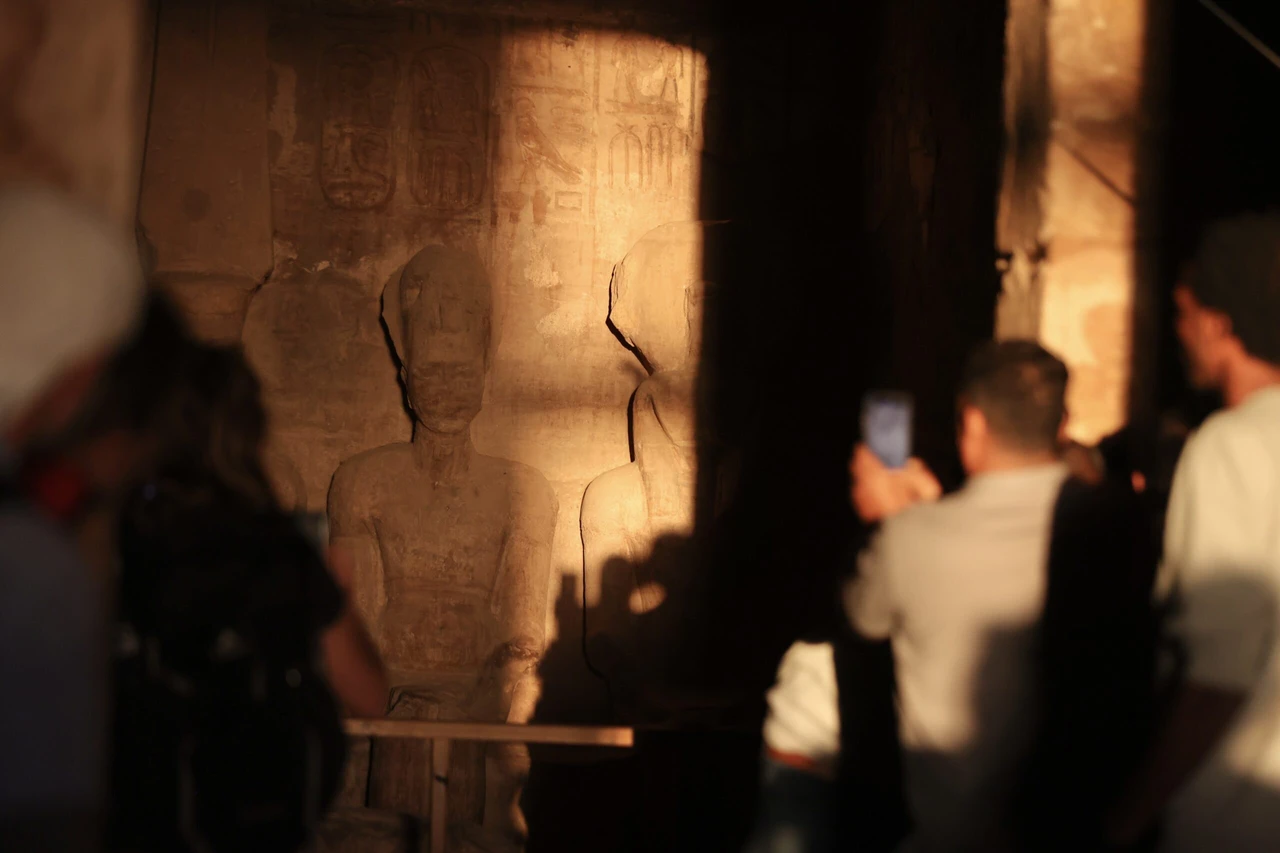 The statue of Pharaoh Ramses II at the Abu Simbel Temple in Aswan, located in southern Egypt, was illuminated by sunlight. This astronomical marvel occurs twice a year on October 22, considered the birth anniversary of Ramses II, and February 22, recognized as his coronation day. October 22, 2024. (AA Photo)
The statue of Pharaoh Ramses II at the Abu Simbel Temple in Aswan, located in southern Egypt, was illuminated by sunlight. This astronomical marvel occurs twice a year on October 22, considered the birth anniversary of Ramses II, and February 22, recognized as his coronation day. October 22, 2024. (AA Photo)
The statue of Pharaoh Ramses II at Egypt’s Abu Simbel Temple in Aswan was bathed in sunlight during a rare celestial event that occurs only twice a year.
According to a statement from the Aswan Governorship, 4,000 tourists, including 1,400 foreigners, gathered to witness this breathtaking phenomenon.
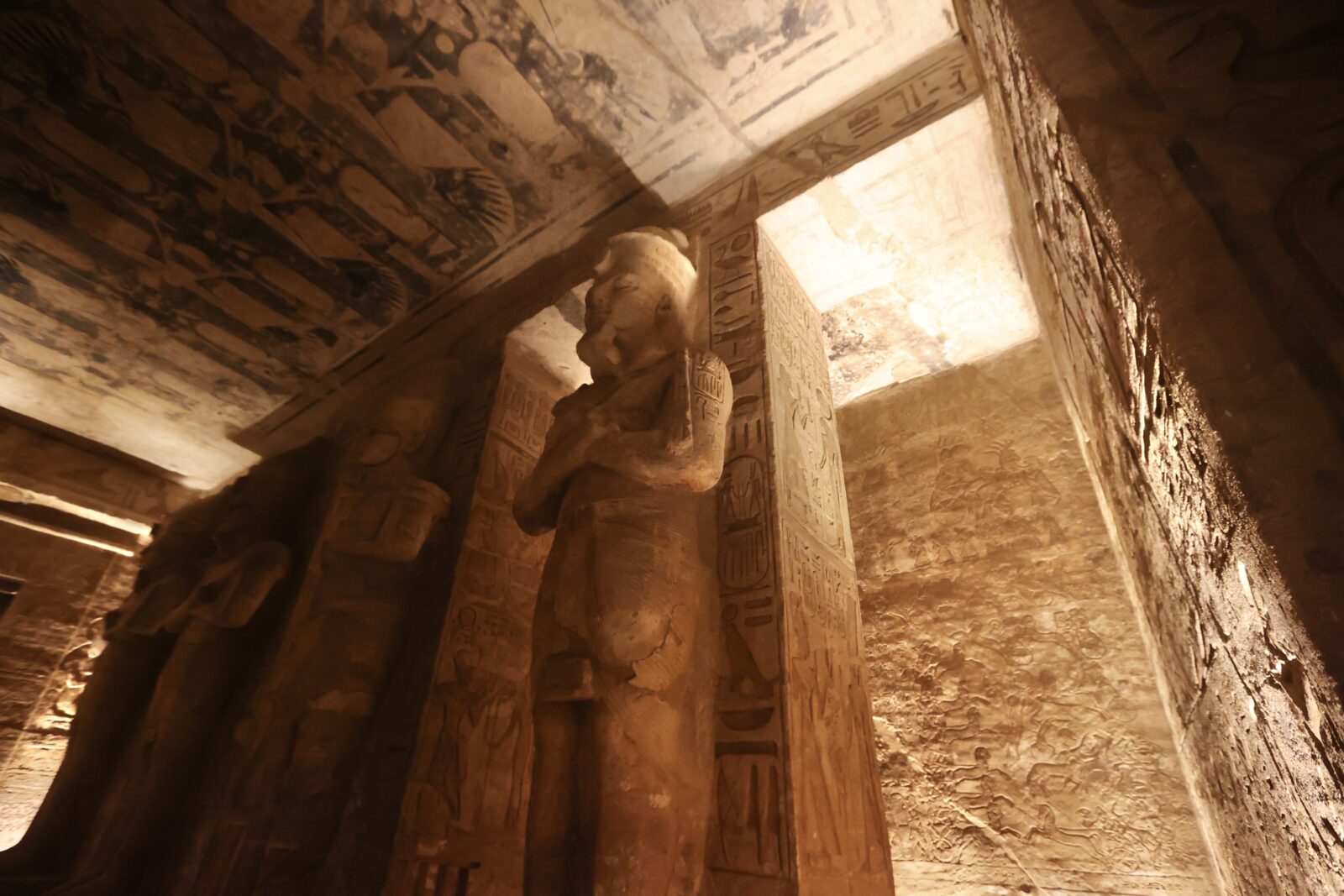
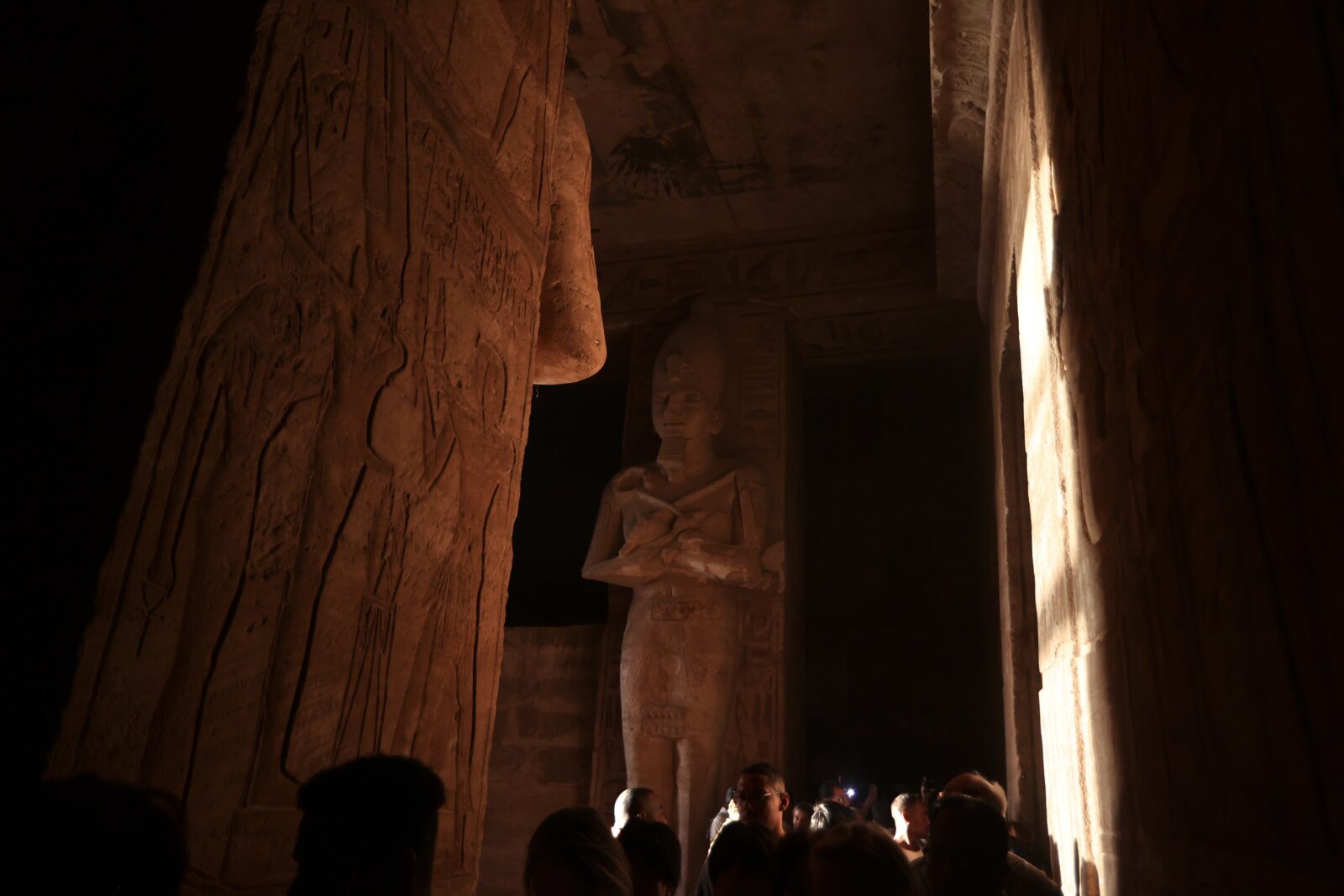
Abu Simbel: Hub of ancient astronomy
The region around Abu Simbel was known for its astronomical significance during the Pharaonic era. To the northwest of the temple, there is an ancient stone compass dating back 11,000 years, along with a stone sundial that indicates the onset of rainfall.
The Abu Simbel Temple carved into a mountain over two decades, features four colossal statues of Ramses II at its entrance. This extraordinary event occurs only on two specific dates each year – Oct. 22, considered the “birth anniversary” of Ramses II, and Feb.22, recognized as his “coronation day.”
The sunlight illuminates the statue for approximately 20 minutes.
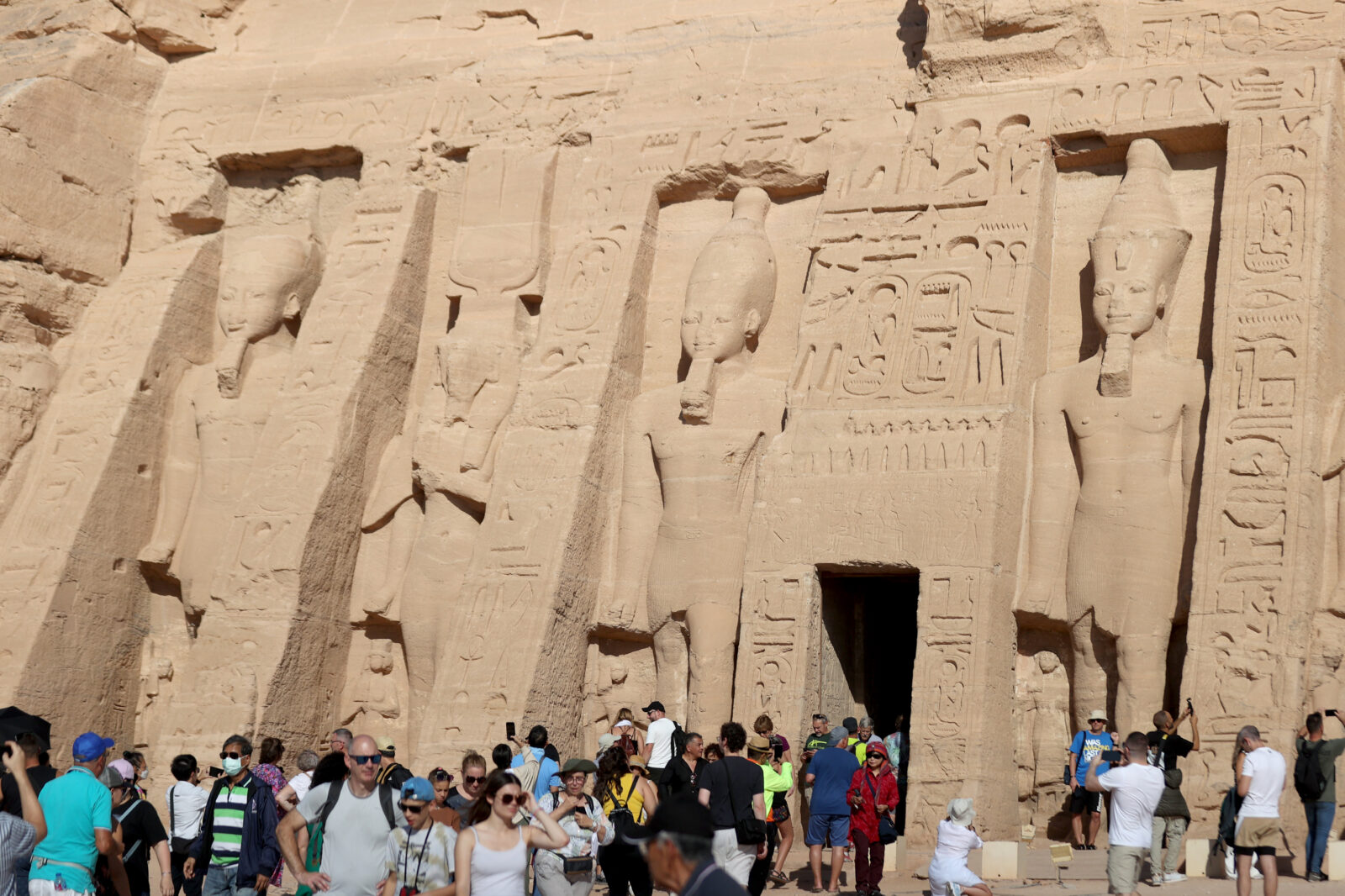
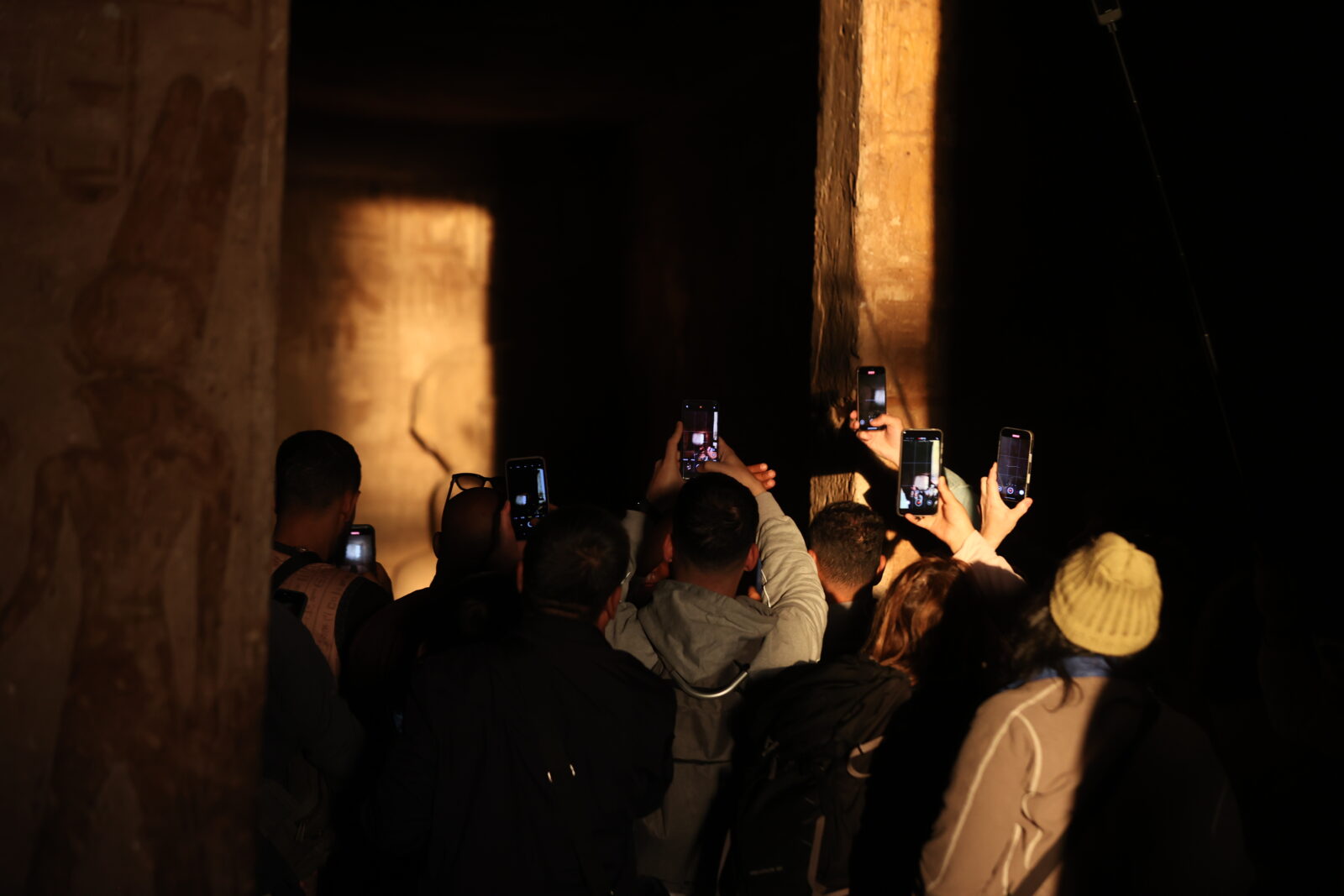
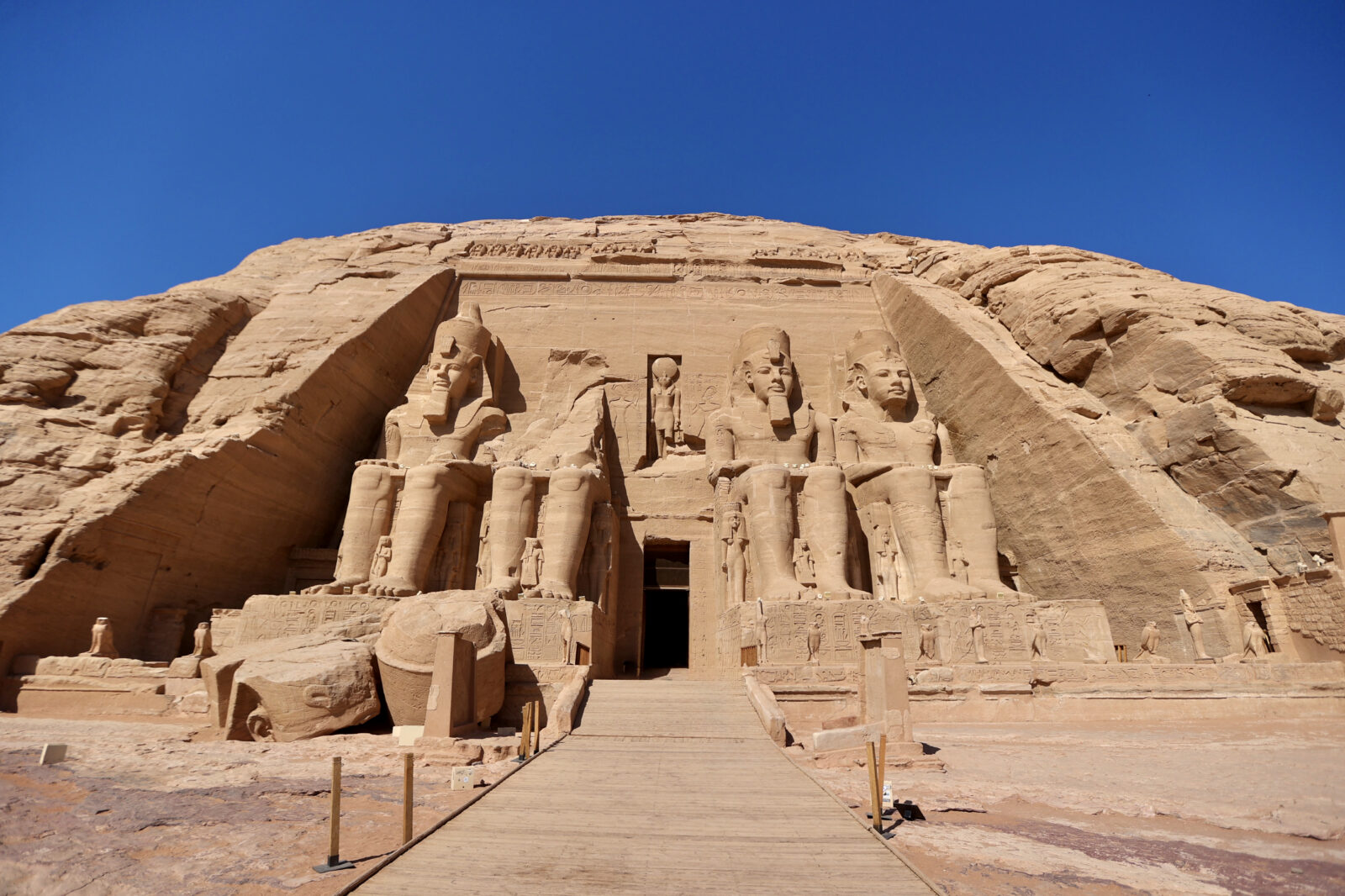
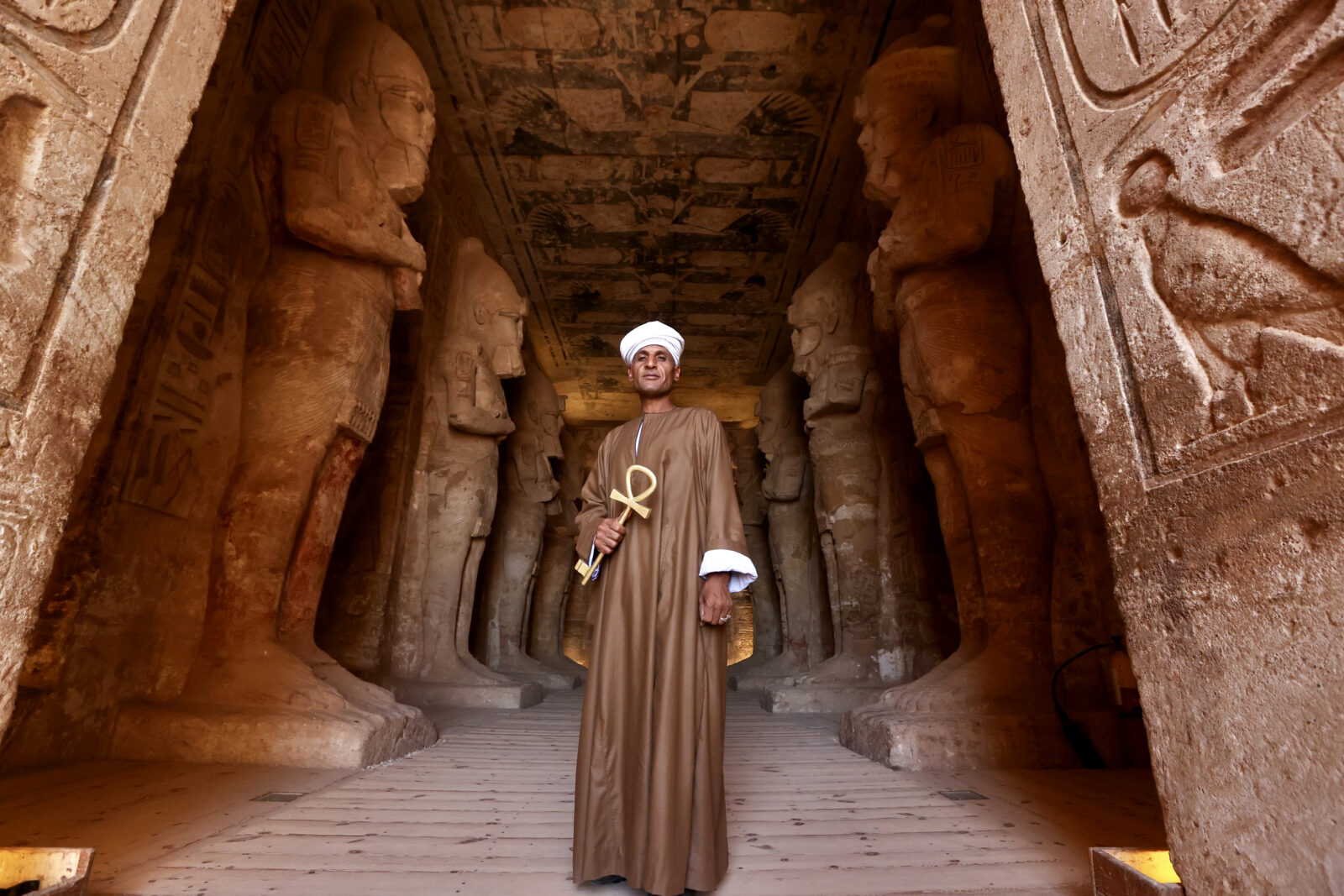
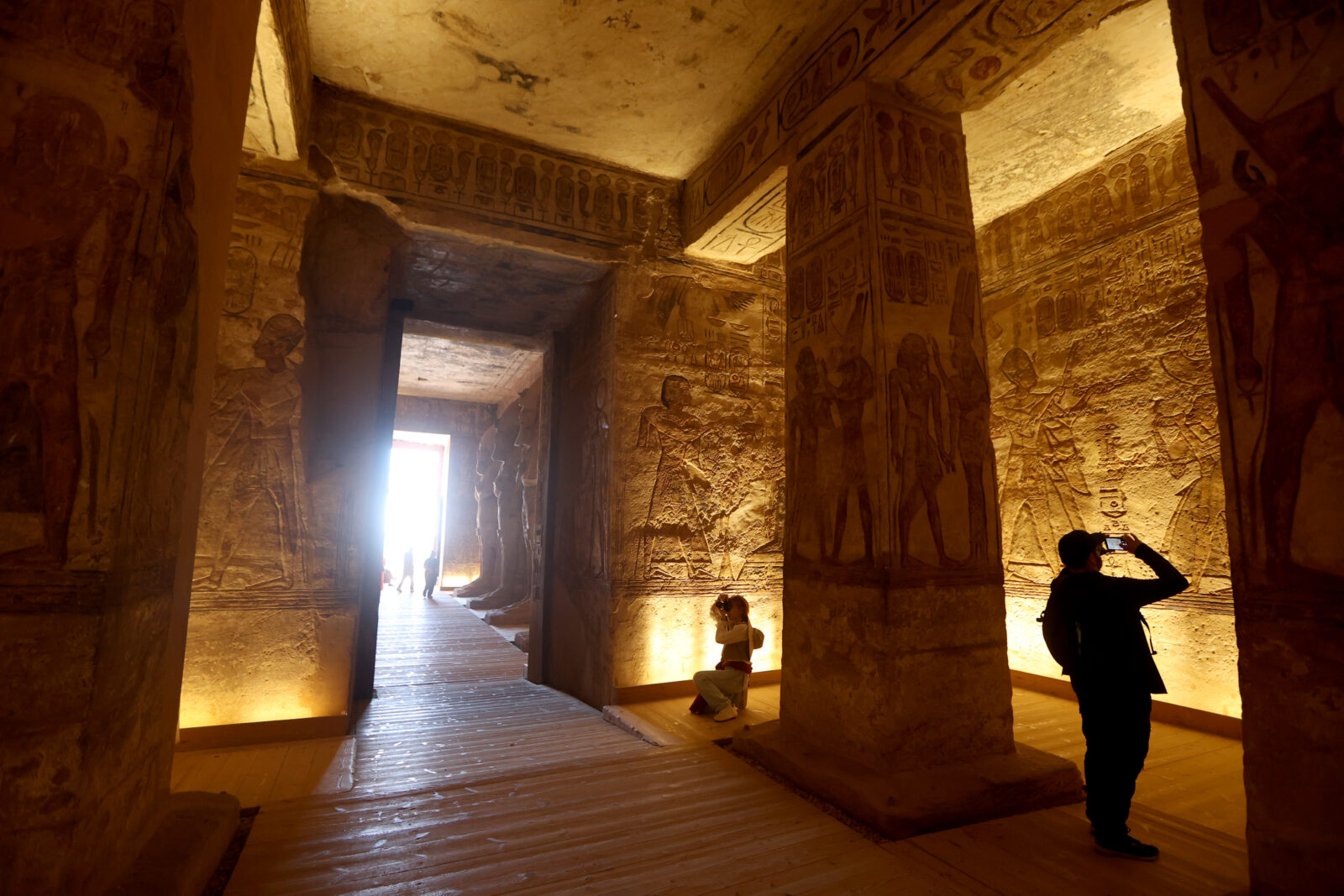
Marking seasons in ancient Egypt
In ancient Egypt, two significant dates held profound meaning. October 22 marked the onset of the agricultural season, while Feb.22 heralded the beginning of the harvest.
The sun’s rays illuminating Ramses II’s face on these days were interpreted as a powerful omen, symbolizing the king’s reign in harmony with the cycles of nature.
This rare solar alignment with the statue of Ramses II continues to attract visitors from around the globe, highlighting Egypt’s advanced understanding of astronomy and its remarkable architectural achievements.
This phenomenon serves as a testament to the sophisticated scientific and cultural advancements of ancient Egypt, which continue to captivate audiences thousands of years later.

